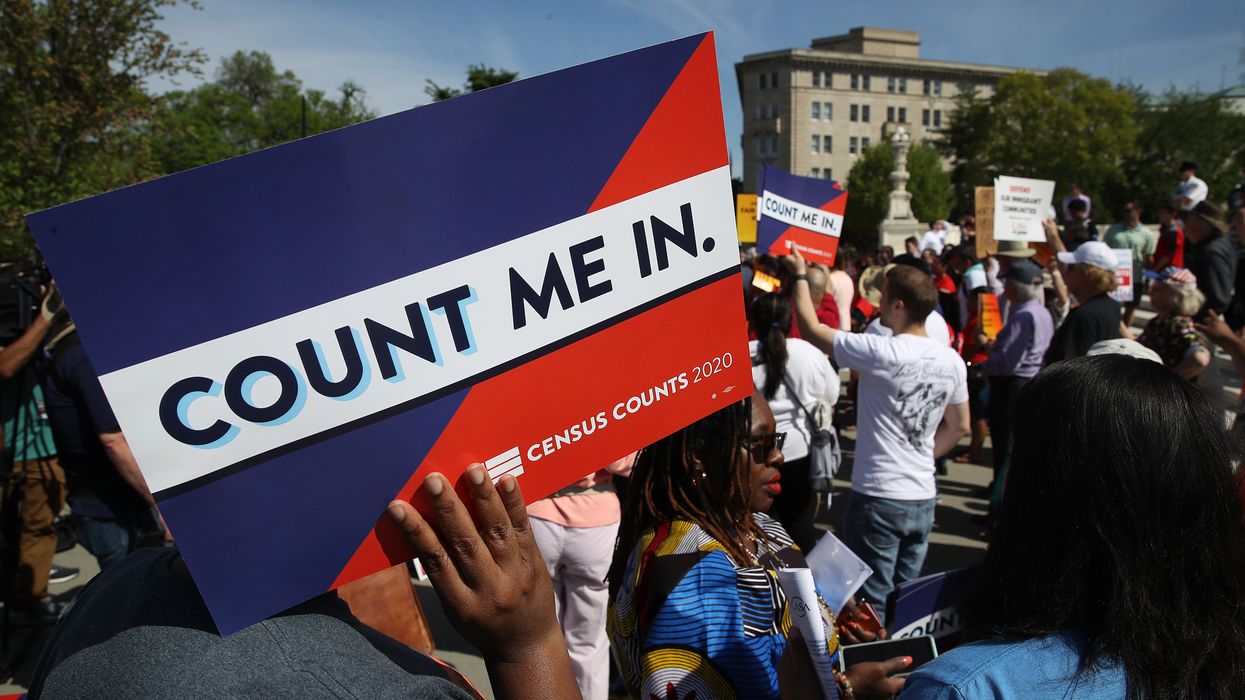Landmark rulings in the two biggest disputes before the Supreme Court, each with enormous consequences for the cause of better democracy, are coming by the end of the week.
The justices will next announce decisions Wednesday, and probably the day or two after. Four cases were decided Monday, meaning eight are still up in the air – including potentially historic challenges to partisan congressional gerrymandering and a citizenship question on the census.
It's rare for the court to climax its term with a pair of rulings that get to the heart of such similar questions, in this instance about the constitutionally permissible reach of politics in setting the ground rules for representative government. Whether the back-to-back opinions from the court, now with a clear-cut 5-4 conservative majority, amount to a unified message or mixed signals could determine for decades how deeply partisanship can permeate the system.
At a minimum, the decisions will have fundamental consequences on elections for Congress and the state legislatures, and on the annual distribution of billions of dollars in federal aid to the states.
Advocates for a more functional democracy care deeply about both cases.
Allowing the Commerce Department to add a citizenship question to next year's census will grant the Trump administration a nefarious wish, they say, by deterring millions of undocumented immigrants from taking part in the head count for fear of deportation. And the aim, opponents of the citizenship query argue, is an unsubtle effort to engineer a deliberate undercount in places with large immigrant and Latino populations. Doings so would have the undeniable effect of draining Democratic-leaning legislative seats from urban areas and distributing them to suburban and rural areas with non-Hispanic-white majorities, where Republicans do best.
The Constitution says the census is for counting everyone living in the country at the start of the decade, mainly to apportion House seats among the states. The results are also used for allocating all sorts of federal benefits, grants and public works dollars based on city, county and statewide populations.
The administration says it must ask all census respondents if they are citizens to better enforce voting rights laws. Opponents say that's a pretext for a political move.
Three lower courts have said the administration exceeded its powers in arranging for the question and ruled it should not be permitted, But the five conservatives on the Supreme Court, at oral arguments in April, seemed ready to rule the opposite way.
Since then, however, the Trump administration's rationale has come under fresh scrutiny thanks to newly publicized documents suggesting a baldly political motivation. The records were found on a hard drive of the late GOP strategist Thomas Hofeller, renowned as a master at drawing legislative boundaries for maximum partisan gain, and they show he was involved in the creation of the citizenship question.
New court challenges filed since Hofeller's papers were unearthed could prompt a last-second decision by the high court to delay a ruling, which would significantly complicate the timing of the census most Americans are supposed to answer in April.
The twinned and bipartisan challenges to perceived partisan excesses in political mapmaking are also running up against a deadline - albeit one not quite as stringent as the printer's demand to rill the presses on tens of millions of census questionnaires.
In the gerrymandering cases, "good government" advocates are hoping the court will do for members of on-the-outs political parties what they did decades ago for members of racial majorities – declare they have a constitutional right at a fair shot to elect their preferred candidates to Congress.
One case, in North Carolina, where the overall vote for House candidates this decade has almost precisely divided between Democrats and Republicans, involves GOP state legislators who said they were unambiguously out to draw a House map that would routinely elect fellow Republicans to 10 of the 13 seats. They only stopped at 10 because they concluded an 11th seat was beyond their cartographic reach.
In the other case, in Maryland, where Democrats can count on winning three of every five votes for Congress statewide but never much more, Democratic legislators just as unabashedly drew a map for this decade designed to elect members of their party to seven of the eight House seats.
Democracy reformers say that allowing politicians to pick their voters, rather than the other way around, is an accelerant of partisan polarization and a depressant for the public's confidence in the system. What they have not come up with, though, is a compelling formula for deciding when partisanship in drawing districts has gone too far.
And during arguments in March, the five conservative justices made plain their skepticism about intervening with their own recipe to supersede the basic political horse-trading that's governed the drawing the boundaries for decades. The four liberal justices, on the contrary, seemed ready to set a constitutional test for the partisan limit of gerrymandering.
The districting cases are prime examples of how one change in the court's makeup can fundamentally alter its collective point of view. A year ago, the court turned aside some similar partisan gerrymandering cases just before the retirement of Justice Anthony Kennedy, who had signaled several times he was ready to join the liberals as soon as they could come up with a reasonable test. His successor, Brett Kavanaugh, has not said anything similar.
Since the oral arguments, federal judges in Wisconsin and Ohio have declared the congressional maps in the states were unconstitutionally gerrymandered for Republican advantage and must be redrawn in time for the 2020 election. But the next step in both places is to see whether the Supreme Court will effectively underscore those rulings – or nullify them.





















Why does the Trump family always get a pass?